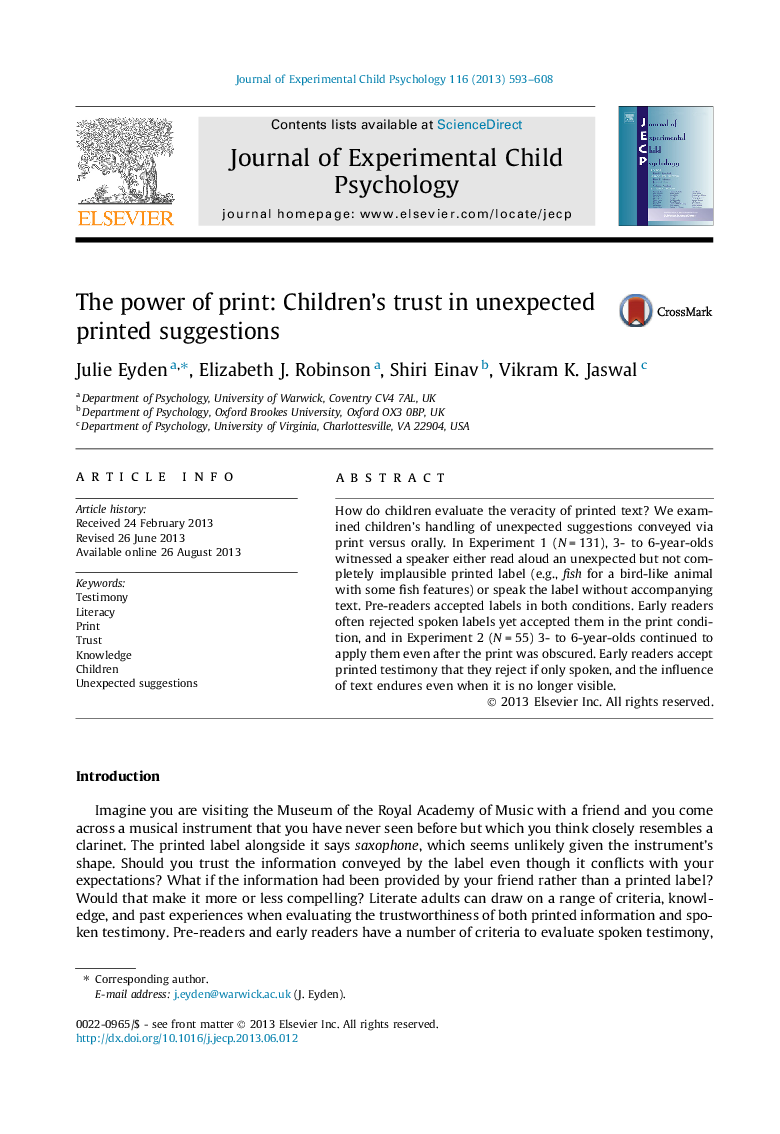| Article ID | Journal | Published Year | Pages | File Type |
|---|---|---|---|---|
| 10453058 | Journal of Experimental Child Psychology | 2013 | 16 Pages |
Abstract
How do children evaluate the veracity of printed text? We examined children's handling of unexpected suggestions conveyed via print versus orally. In Experiment 1 (NÂ =Â 131), 3- to 6-year-olds witnessed a speaker either read aloud an unexpected but not completely implausible printed label (e.g., fish for a bird-like animal with some fish features) or speak the label without accompanying text. Pre-readers accepted labels in both conditions. Early readers often rejected spoken labels yet accepted them in the print condition, and in Experiment 2 (NÂ =Â 55) 3- to 6-year-olds continued to apply them even after the print was obscured. Early readers accept printed testimony that they reject if only spoken, and the influence of text endures even when it is no longer visible.
Related Topics
Social Sciences and Humanities
Psychology
Developmental and Educational Psychology
Authors
Julie Eyden, Elizabeth J. Robinson, Shiri Einav, Vikram K. Jaswal,
